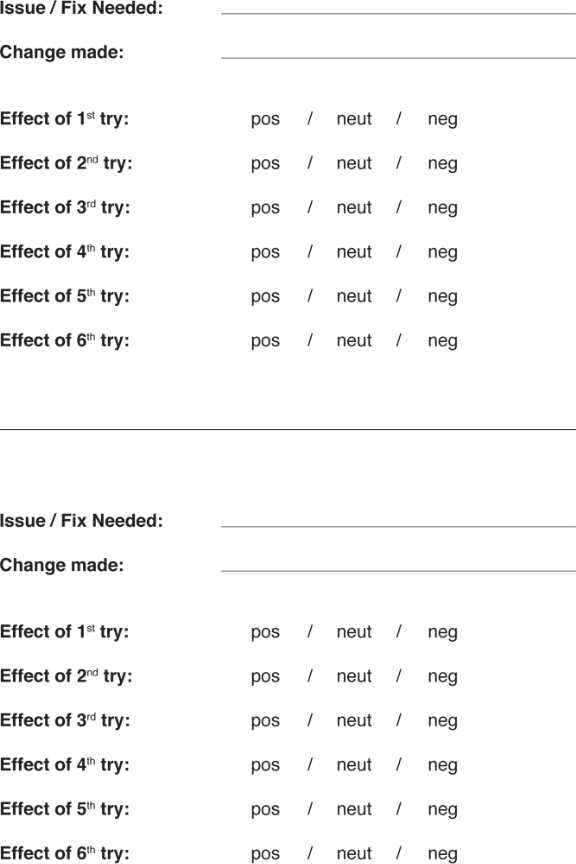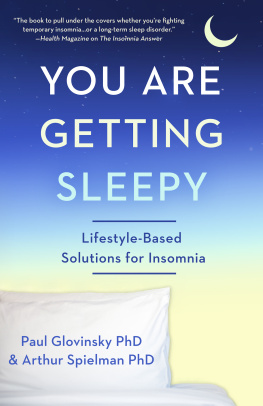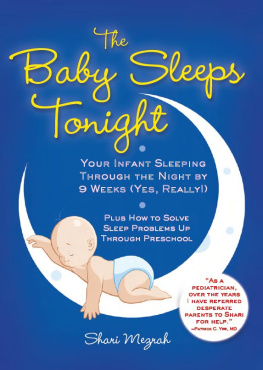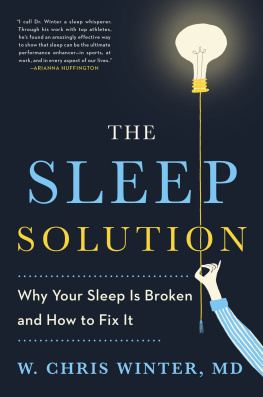Being The Right Person
Should I adopt a polyphasic schedule? is one of the most frequent questions I get. Its usually accompanied by a but, as in, I want to be polyphasic but. Since wanting to is the first step, well start with that and move on to the buts later.
Wanting to in the philosophical sense I just spoke about isnt enough. Philosophically speaking, we all probably want to be and do lots of things, but many of them arent worth the effort. Polyphasic sleeping is definitely an effort; probably as much of one as becoming vegan or taking up an athletic regime. Sleep is a pretty fundamental thing to change! So first you need to figure out if you want the change enough to make it worth the effort .
That means asking yourself some questions and getting some honest answers. None of the answers by themselves are a deal-breaker, but if more than one of these questions reveals a problematic issue for you, you should seriously reconsider any plans to become polyphasic, and if you decide to go forward with it anyway, expect some challenges.
Here are the questions, though there may be others that can also be helpful:
- Why do you want it? Whats your primary reason? Is it powerful enough to be worth spending either several incredibly long days slapping yourself to stay awake, or several weeks feeling like you had half a nights sleep ? Think about what it feels like when you skip a whole nights sleep, and then double that and drag it out for a weekthats a good general image of what youll feel like while youre adapting. Is the reason you want to be polyphasic compelling enough to be worth that?
- Do you have a reason other than wanting to try it out? If your reason above is because its cool or I just want to try it or I want to see what its like, think hard: Most people do much better if they have a compelling reason, even if they dont think they need one. If you dont have a compelling reason, can you create one, or do you really think you can motivate yourself sufficiently without one?
- Does self-discipline come naturally to you? If not, you may (probably will) need to take extra steps to help you succeed. If youve never had to really discipline yourself, you may want to study up on some methods for doing that before attempting to change your sleep schedule drastically. Discipline is a habit, which means that once you have it, youll fall back on it by default, and thats why its importantbecause you will reach a point, at least once during adaptation, where you simply cant exert rational power over yourself anymore. Rationality can be a powerful force, but very rarely is it more powerful than your brain/body in full-on survival mode. When you reach that point, the only things that will keep you on schedule are a) someone else or some external thing forcing you to stick with it, or b) your habit of being disciplined.
- How are you with physical discomfort? If you cant stand feeling dizzy, spacey, tingly, dry-eyed, achy, weak, nauseous, stupid, and generally like youve been hit by a bus and then buried in peat moss, youre going to fold up, probably during or after day two. It takes a certain skill to let your bodys discomfort be a bit separate from you, and without that skill, adaptation will be very, very difficult. If you dont have the skill and want to learn it, I suggest getting tattoos (piercings dont work; they happen too fast) or being pregnant for of a year and then giving birth. :)
- How are you with mental discomfort? Besides the zombie-like levels of intelligence youll possess for a few days during adaptation, its also common to experience other psychological effects when deprived of sleep. Your brain is a survival machine, and it panics when it feels threatened, which it will when it suddenly stops being able to get the sleep its used to (and until it gets used to sleeping on the schedule you give it). For a short time, you will probably experience doubts, mood swings, possibly some depression, maybe some psychosomatic physical symptoms, and quite likely a few hallucinations. Like fasting or any other extreme physiological challenge, adjusting to a polyphasic schedule means being able to beat your own brain at the game of controlling your body. Its not easy, but the feeling of victory is amazing. (And there are other rewards too, in this case.)
- How are you with people thinking youre a weirdo? This can range from funny looks to being publicly called a lunatic and told that you shouldnt be allowed to look after yourself if thats the kind of crap youre going to do it can be mild or severe depending on your lifestyle and social surroundings, but it never stops, really, for as long as youre on the schedule. Also, are you okay with occasionally being cornered and asked tons of questions by people you wouldnt normally talk to? (Its taken me a while to get used to that!)
- How much do you need company? One effect of polyphasic sleeping is that you tend to spend a noticeably higher percentage of time being by yourself. Youre awake more often when other people are asleep, and sleeping during some of the time theyre awake. Make sure your family and social selves (and companions) are okay with that. (If you get lonely and have a friend or partner wholl do this with you, that can be great but if you like being alone, be careful of having anyone adapt with you, because youll probably be seeing them a lot!)
- Are you punctual? Theres a massive amount of scheduling and timing involved in being polyphasic (compared to regular living, where your schedule is typically just determined by your activities, most of which assume a monophasic lifestyle). Its harder (i.e. crazy strict) while youre adjusting, but you still have to do some kind of scheduling for pretty much the whole time youre polyphasic. If you hate clocks, hate planning your activities, or are always behind-schedule and late getting places, you may want to either reconsider polyphasic sleep, or work on your punctuality first.
Which one depends on the schedule you choose, obviously. It shouldnt be overlooked, though, that whichever schedule you pick, if you mess up during your adaptation, you could be in for both. (More about the Adaptation process in the next chapter.)
Tracking Habits and Successes
It can be hard for many people to keep track of what theyve tried and whats been successful, especially when tweaking a schedule or troubleshooting a problem nap. This last Cheat Sheet is just a place for you to write things that youve tried and how often they worked, so that you can have a place to look and see that, for instance, sleeping on the couch isnt working for you, but eating lunch early is helping. In my experience, five or six times usually tells when a fix is likely to work, though dont forget that it will take a month to truly get used to any changes you make. You may also try different things to fix one certain issue, in which case just leave the extraneous Issue lines blank, or use them for notes.
This is also good information with which to develop a spreadsheetif youre usually online, a Google doc or Evernote is an awesome way to track this type of data.
And you can, of course, expand this with more informationdates and times, or more singular details applicable to the type of fix youre implementing (type of food, type of alarm, etc.)if that helps you. It depends entirely on how useful/important data gathering is to you, and how likely you are to benefit from the data later on.

Psychological & Social Effects
Theres no way Im going to be able to cover all of the possible effects here, so forgive me in advance. Being polyphasic does many, mostly subtle, but definitely interesting things to your mind. For the most part, they seem to be neutral, with a few positive and a few negative possibilities lurking in the wings. If you take good care of yourself, all the evidence I know suggests that you should be just fine (or better off) mentally as a result of adopting a polyphasic schedule.











